What if Marcus Aurelius, the great philosopher-emperor, had chosen a more capable successor? Imagine if he had selected an heir who embodied the principles of Stoicism and could lead the Roman Empire with wisdom and virtue.
In this alternate timeline, how might the course of history have changed?
Let's explore the possibilities and challenges this hypothetical successor would face in a world of political intrigue and competing interests.
The Philosopher-Emperor's Legacy
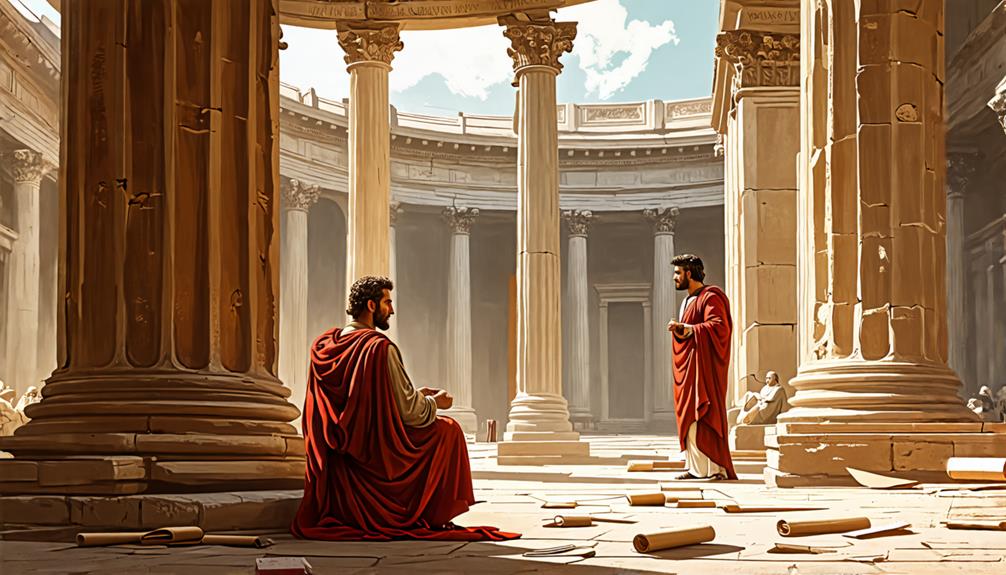
In an alternative history, if Marcus Aurelius had been succeeded by a more philosophically-inclined heir, Stoicism may have become more deeply entrenched in Roman society and governance. One theory is that this could have led to a greater emphasis on reason, virtue, and self-discipline among the ruling class, potentially influencing decision-making and policies.
However, it's also possible that a more Stoic-oriented empire might've been less adaptable to changing circumstances, as the philosophy often advocated for acceptance of one's fate.
Interestingly, a similar scenario did occur later in history with the reign of Julian the Philosopher in the 4th century AD, although his tenure was short-lived, and Christianity ultimately prevailed as the dominant belief system in the Roman Empire.
Identifying Potential Successors
If Marcus Aurelius had been more proactive about selecting a philosophically-aligned successor, it may have led to a different course for the Roman Empire. One theory is that a Stoic-minded emperor could have continued Marcus Aurelius' policies, promoting a more equitable and just society.
However, it's also possible that such an emperor might've faced opposition from other powerful factions within the empire, leading to political instability.
Interestingly, a similar scenario did occur later in Roman history when the emperor Julian, known as 'Julian the Philosopher,' attempted to revive traditional Roman values and beliefs in the 4th century AD.
Julian's reign was short-lived, but his efforts demonstrate the challenges of implementing philosophical ideals in a complex political landscape.
Mentorship and Training
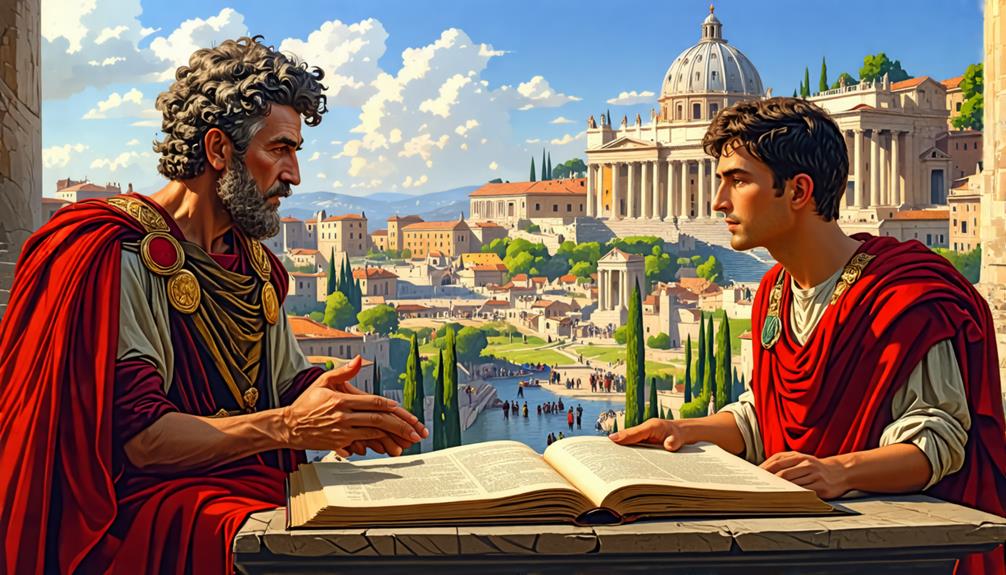
In an alternate timeline, Marcus Aurelius could have established a mentorship program to train successors in Stoicism and governance. One theory is that this might've led to a more stable transition of power and a continuation of his philosophical principles.
However, it's also possible that even with training, future emperors may have strayed from his teachings due to various pressures and influences.
Interestingly, a somewhat similar scenario did occur centuries later with the philosopher-king Frederick the Great of Prussia in the 1700s. He sought to govern according to Enlightenment principles and cultivated a court of intellectuals, although his actual reign had mixed results.
Challenges and Obstacles
Had Marcus Aurelius successfully overcome the challenges he faced, it's possible the Roman Empire could have seen significant reforms. One theory is that reduced corruption and a more stable succession of like-minded emperors might've prolonged Rome's golden age.
Alternatively, Marcus Aurelius' philosophical ideals may have clashed with the practical realities of ruling an empire, leading to internal strife or weakening Rome's defenses.
Centuries later, other rulers like Frederick the Great or Marcus Aurelius attempted to implement enlightened despotism guided by reason and virtue. However, like Marcus Aurelius, they struggled against entrenched interests and the difficulties inherent in reforming complex societies and political systems.
Lasting change proved elusive, though some argue their reigns still marked an important shift in how the role and responsibilities of rulers were conceived.
Impact on the Empire
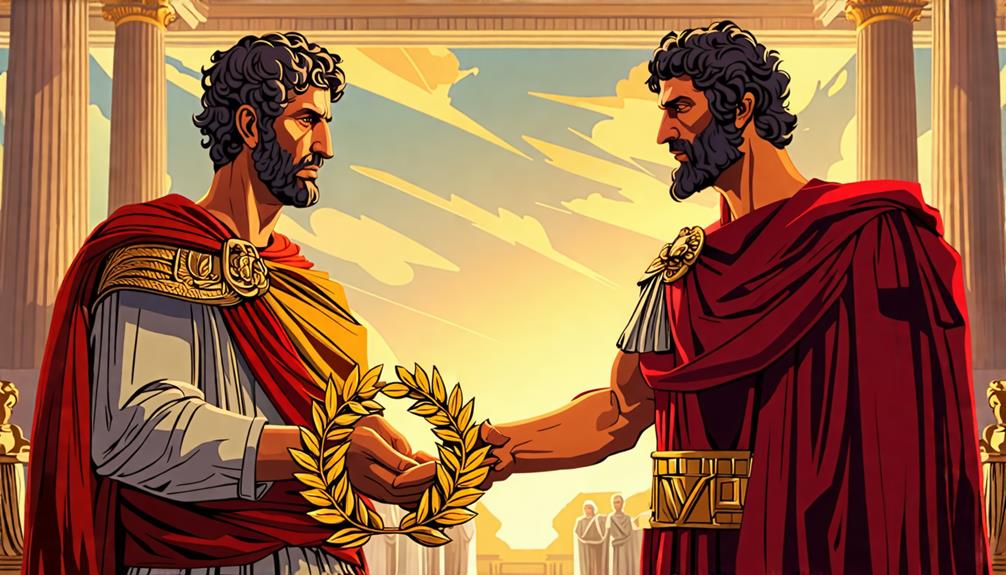
In an alternative history scenario, Marcus Aurelius' reign and philosophy could have shaped the Roman Empire quite differently. One theory is that if his Stoic philosophy had been more widely adopted, it may have led to a more disciplined and virtuous ruling class, potentially avoiding some of the excesses and corruption that plagued later emperors.
However, it's also possible that even with a stronger philosophical foundation, the empire could have still overextended its resources militarily, leading to economic strain and political instability. Additionally, had Marcus Aurelius chosen a more capable successor than Commodus, the empire might've continued to thrive under stable leadership, but this is far from certain.
Interestingly, some of these ideas were explored centuries later during the Age of Enlightenment, when philosophers like Montesquieu and Voltaire drew inspiration from Stoicism and other classical philosophies to critique their own societies and propose reforms.
Lessons for Future Leaders
In an alternative history scenario, if Marcus Aurelius' philosophy hadn't been passed down, the world may have seen very different leadership styles emerge.
One theory is that rulers would have been more focused on personal gain and power, rather than the welfare of their people and state. It's possible this could have led to more oppressive and tyrannical regimes.
Some believe the absence of Aurelius' Stoic teachings on resilience would have meant leaders were less equipped to handle crises and challenges. Without his example of emotional control and rational decision-making, they may have been prone to impulsive actions with negative consequences.
However, it's conceivable that similar philosophies could have risen to prominence later through other influential figures.
Alternate Historical Scenarios
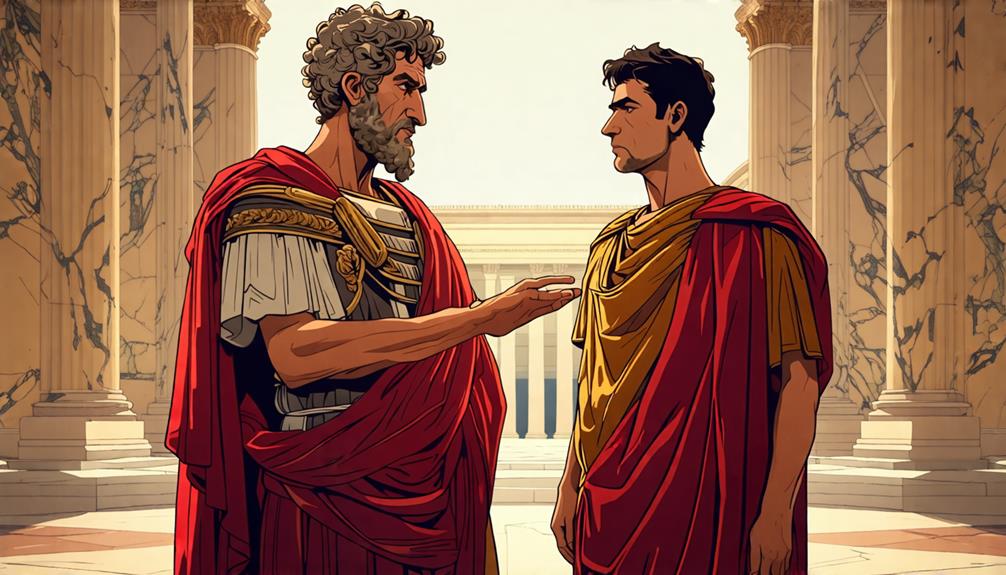
In this alternate historical scenario, Marcus Aurelius' Stoic philosophy fades into obscurity, leading to a very different Roman Empire.
One theory is that subsequent emperors would have focused more on personal power and wealth rather than the greater good of the empire and its citizens. This could have led to increased oppression, corruption, and ultimately the premature collapse of the Pax Romana.
While this specific scenario didn't play out, some later emperors like Commodus and Caracalla did rule in tyrannical and self-serving ways.
It's possible that without the tempering influence of Stoic philosophy, such leadership styles may have become more prevalent, forever altering the trajectory of Rome and Western civilization.
However, the extent and precise consequences of this divergence are left to the reader's speculation.
Conclusion
You can't help but wonder how different history might've been if Marcus Aurelius had passed the torch to a more capable successor.
A protégé steeped in Stoic principles could have kept the empire on an even keel, avoiding the chaos that followed.
While we'll never know for sure, it's a powerful reminder that great leaders must think beyond their own reign, ensuring their vision endures long after they're gone.
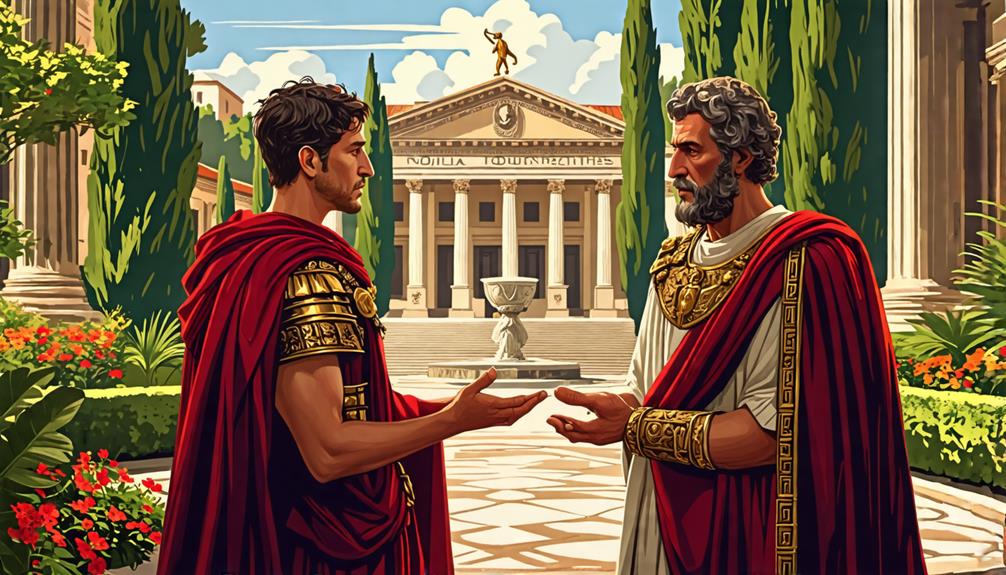
Leave a Reply